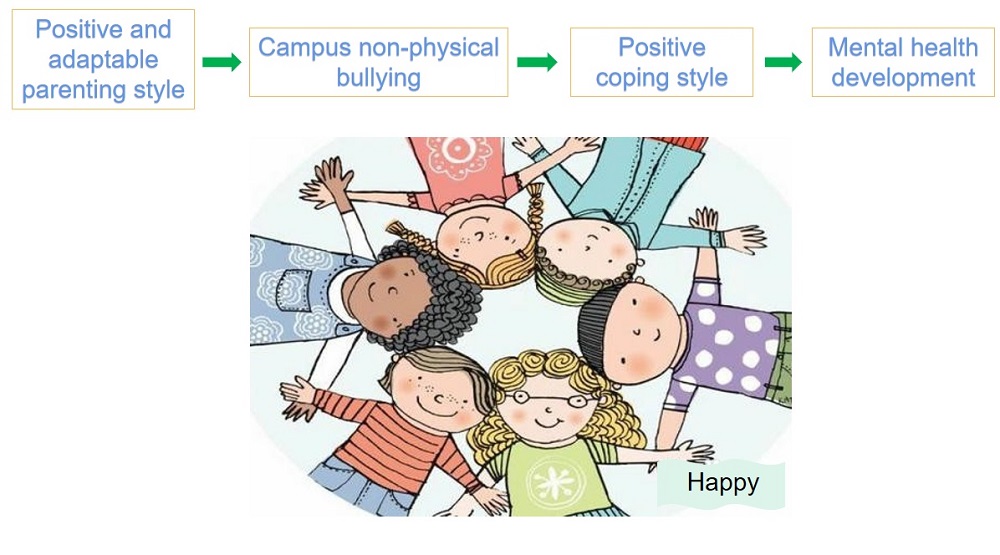To explore the impact of parenting styles on the perception of campus non-physical bullying, 492 students in upper elementary school grades were surveyed by using the Delaware Bullying Victimization Scale, the Negative Coping Style Scale, the Negative Affect Scale, and the Egna Minnen Beträffende Uppfostran Questionnaire. The questionnaire survey was conducted in the fifth and sixth grades of eight primary schools in Zhejiang province. The results showed that cyberbullying was not significantly related to an anxious parenting style, but negative affect experiences, negative coping styles, negative family parenting styles, and the perception of campus non-physical bullying were all positively correlated with each other (p < 0.05). The refusal parenting style was shown to be an important factor that affected students’ perception of campus non-physical bullying; it was observed to directly affect students’ perception of campus non-physical bullying and indirectly affect students’ perception of campus non-physical bullying by influencing negative affect experiences and negative coping styles. In conclusion, negative affect experiences and negative coping styles had a chain-like mediating effect between the refusal parenting style and students’ perception of campus verbal bullying. Moreover, negative affect experiences had a partial mediating effect between the refusal parenting style and students’ perceptions of campus cyberbullying, relationship bullying, and non-physical bullying total scores. Implications and suggestions based on these results are also discussed.

